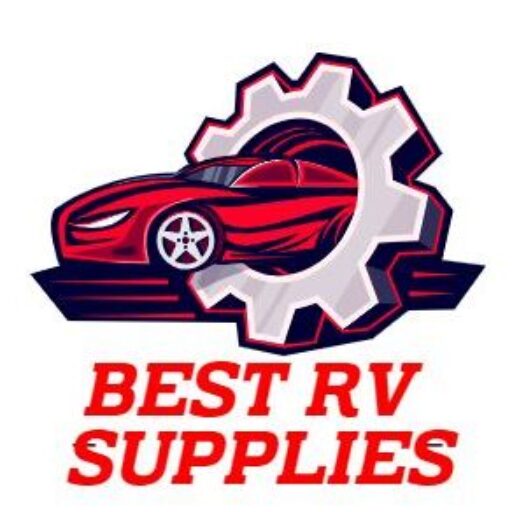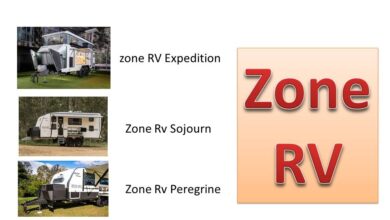Where to Complain About RV Consumer Problems?

Owning an RV can be one if the most rewarding experiences that can be offered, it gives you a power to roam around the country and enjoy the natural world. But, as you know, every vehicle has its advantages and disadvantages and rv is no exception, with mechanical related problems and service issues. For the RV consumer grievances to be heard and their rights s protected, it is important to know where to complain to. Lodging of complaints: In this article, we will learn Where to Complain About RV Consumer Problems? the actions required in order to do that, as well as how to promote the considered issues.
Table of Contents
Understanding RV Consumer Problems
Common RV Issues
Before we dive into where to complain, it’s essential to understand the types of issues RV owners typically face. Common problems include:
| Type of Issue | Description |
|---|---|
| Mechanical Failures | Engine, transmission, and braking issues |
| Electrical Problems | Faulty wiring, battery issues, or appliance failures |
| Water System Issues | Leaks, pump failures, or water heater problems |
| Warranty Concerns | Disputes over warranty coverage or repairs |
| Service Complaints | Poor service from dealerships or repair shops |
Why Complaints Matter?
Filing complaints can serve multiple purposes:
- Consumer Protection: Assists in promoting consumer rights to protect you while using the products.
- Quality Improvement: Complaints are very important to companies since they make them to enhance on the products and services they offer.
- Consumer Awareness: Increases the knowledge about current problems within the community of recreational vehicle users.
Where to Complain About RV Consumer Problems?
Now that we’ve established the common issues RV owners face, let’s look at where you can voice your concerns effectively.
1. Manufacturer Customer Service
Steps to Take:
- Contact Customer Support: Start by calling or emailing the manufacturer’s customer service department.
- Provide Details: Include your RV model, VIN, and a detailed description of the problem.
- Document Everything: Keep records of all communications, including dates and names of representatives.
Advantages:
- Direct line to the company that manufactured your RV.
- They may offer repairs or solutions under warranty.
2. Local Dealership
If you purchased your RV from a dealership, they should be your first point of contact for service-related issues.
Steps to Take:
- Visit or Call the Dealership: Explain the problem to a service advisor.
- Request Documentation: Ask for a written record of your complaint.
Advantages:
- They have direct access to parts and service departments.
- They may resolve issues quickly, especially if they are minor.

3. Online Forums and Communities
The RV community is vast, and online forums can be a great place to voice complaints and seek advice.
Popular Forums:
| Forum Name | URL | Description |
|---|---|---|
| RV.net | RV.net | A large community forum for RV enthusiasts |
| iRV2 | iRV2.com | Discussion boards for various RV topics |
| Facebook Groups | Varies by location | Local and interest-based RV groups |
Advantages:
- Gain insights from fellow RV owners.
- Find solutions that have worked for others.
4. Better Business Bureau (BBB)
If your issue remains unresolved, consider filing a complaint with the BBB.
Steps to Take:
- Visit the BBB Website: Navigate to the “File a Complaint” section.
- Complete the Form: Provide detailed information about your complaint.
Advantages:
- The BBB mediates complaints and may help you resolve your issue.
- Complaints are publicly visible, prompting businesses to respond.
5. State Consumer Protection Office
Each state has its own consumer protection office, which can be a resource for lodging complaints.
Steps to Take:
- Locate Your State’s Office: Use the National Association of Attorneys General website to find your state’s office.
- Submit Your Complaint: Follow the instructions on their website.
Advantages:
- Offers legal assistance and consumer rights information.
- Can intervene on your behalf if necessary.
6. National Highway Traffic Safety Administration (NHTSA)
If your RV issue involves safety defects, report it to the NHTSA.
Steps to Take:
- Visit the NHTSA Website: Use their online complaint form.
- Provide Detailed Information: Include specifics about the safety issue.
Advantages:
- Helps identify safety issues affecting multiple consumers.
- May lead to recalls or safety improvements.
Read Also : Are Two 6 Volt Batteries Better for RV? : : Can Class B RV Drive in NJ Parkway?
7. Social Media Platforms
Social media can be a powerful tool for voicing complaints.
Platforms to Use:
| Platform | Tips |
|---|---|
| Post in RV-related groups or pages. | |
| Use the company’s handle and hashtags. | |
| Tag the company in your posts. |
Advantages:
- Companies often monitor social media and may respond quickly.
- Public complaints can lead to faster resolutions.
How to Prepare for Filing a Complaint?
Before filing a complaint, it’s important to be organized. Here are some steps to ensure your complaint is taken seriously:
1. Gather Documentation
- Receipts: Keep receipts for any repairs or purchases related to your RV.
- Service Records: Document all service visits and communications.
- Photographic Evidence: Take photos of any issues or damages.
2. Write a Clear Description
When drafting your complaint, make sure to include:
- Specifics: Clearly describe the issue, including dates and events leading to your complaint.
- Desired Resolution: State what you would like the company to do (e.g., repair, refund).
3. Follow Up
- Stay Engaged: If you don’t receive a response within a reasonable timeframe, follow up with the company or agency.
- Keep Records: Document all follow-up communications.

How to Prepare for Filing a Complaint?
Tips for Successful Complaints
- Be Polite: do not argue even if the case is contentious remain polite in your communications. It has to do a lot in solving problems.
- Stay Persistent: In case you do not get a favorable response to your complaint conveniently, do not shy off going to the next level of leadership.
- Know Your Rights: It is important for you to acquaint yourself with consumer protection laws in your state.
- Use Multiple Channels: Do not limit yourself to using different channels for complaint; you can make complaint through social media and through office for consumer protection.
- Share Your Experience: After getting an answer to your question or solving your problem, you may decide to share your experience with RV enthusiasts on forums or[.]
Escalating Your Complaint
If your initial complaint doesn’t yield results, consider escalating your issue:
1. Higher Management
Contact higher management at the dealership or manufacturer. This can often lead to faster resolutions.
2. Consumer Advocacy Groups
Reach out to organizations that focus on consumer rights. They may offer guidance or even legal assistance.
| Organization Name | Contact Information | Description |
|---|---|---|
| Consumer Reports | ConsumerReports.org | Provides resources and advocacy for consumers |
| RV Consumer Group | RVConsumerGroup.com | Offers advice and information specifically for RV owners |
3. Legal Action
As a last resort, consider seeking legal action if you believe your rights as a consumer have been violated. Consult with an attorney specializing in consumer law.
Conclusion
Where to complain about RV consumer problems is something every RC owner should know. Therefore by following the outlined steps and by engaging the provided resources you are well placed to be heard and have your complaints looked into. This is why reaching out to the manufacturer, using online platforms and or reaching out to consumer protection offices is important so as to seek redress for your situation.
Remember that persistence and documentation are key. With the right approach, you can effectively navigate the complaint process and find a resolution to your RV issues. After all, owning an RV should be a source of joy and adventure, not a headache!





